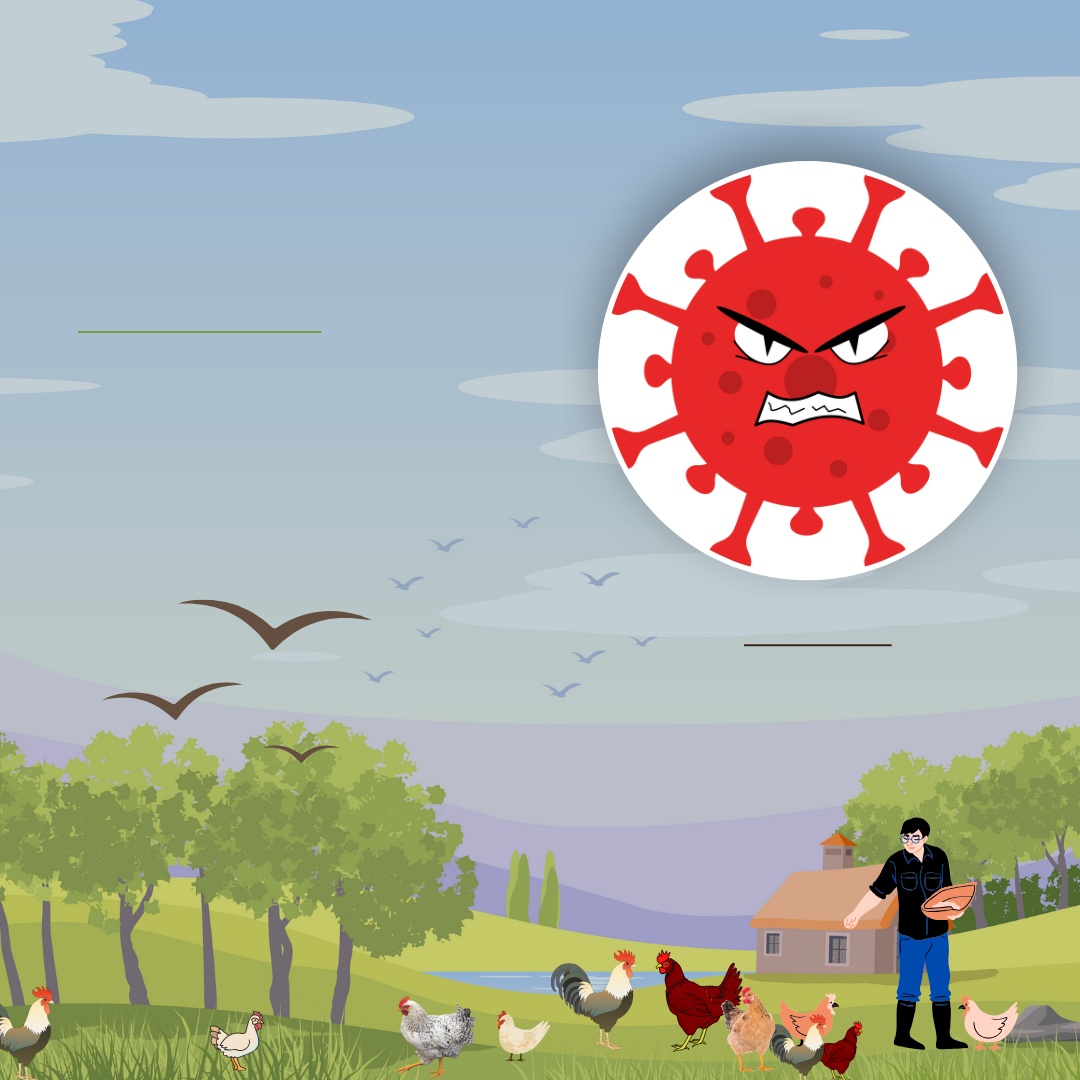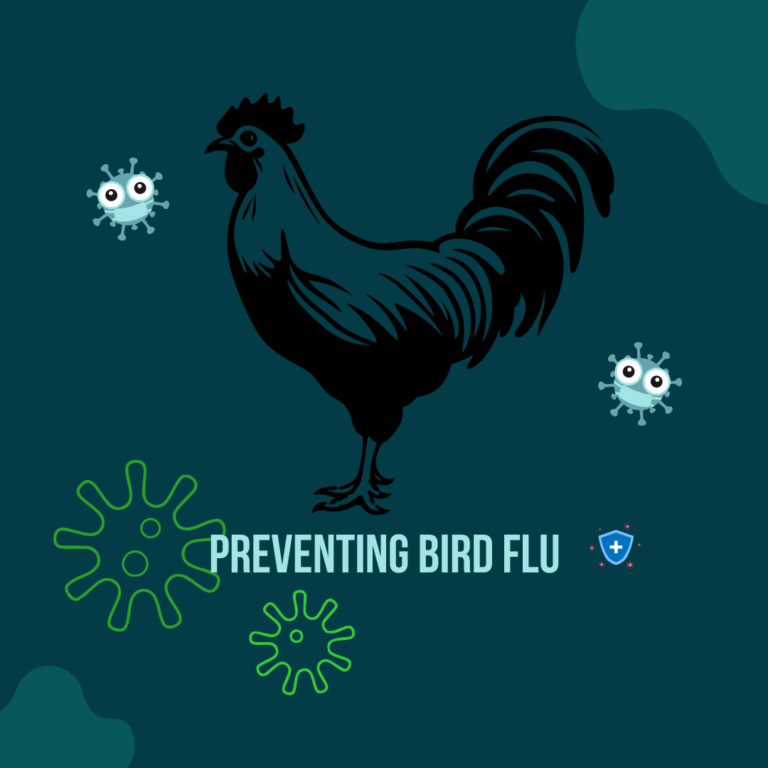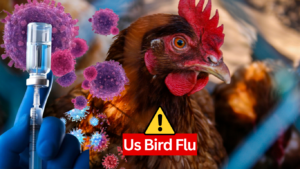
What is Bird Flu?
Bird flu, also known as avian flu, is a type of infection that spreads among birds. This disease can spread rapidly among birds. However, in some rare cases it can also affect humans. So it is important to prevent it.
There are many types of bird flu viruses, but most of them do not affect humans. However, there are 4 types that have become a cause of concern in recent years:
- H5N1 (since 1997)
- H7N9 (since 2013)
- H5N6 (since 2014)
- H5N8 (since 2016)
H5N1, H7N9 and H5N6 viruses do not easily infect humans and do not usually spread from person to person. Despite this, many people around the world have been infected with them and many deaths have also occurred due to them. In February 2021, people were found infected with the H5N8 virus for the first time in Russia.
How is Bird flu Spread?
It is not clear if bird flu can easily spread from one person to another. However, it can happen in certain cases, such as when someone cares for a sick family member.
The biggest reason behind spreading this virus are wild birds. Infected migratory birds can spread bird flu to the places they visit. Most wild birds do not show symptoms of bird flu, but in some severe cases it can cause illness and death.
The bird flu virus often affects domestic birds such as chickens and turkeys. There is no evidence yet that dangerous bird flu viruses such as H5N1 can easily spread between humans.
Symptoms of sick birds can vary by species. They may include symptoms such as diarrhea, difficulty breathing, and death. Sick birds can spread the virus through their feathers, saliva, mucus, and feces.
Who is at risk?
Most people are not at risk of getting bird flu. But people who come into contact with infected birds or their secretions, or care for an infected person, may get the disease.
People most at risk of this disease are those who live or work close to sick birds, such as poultry farm workers. This can happen if the virus enters a person’s body through their eyes, nose, mouth or breath.
For example, if someone touches a sick bird, then eats something without cleaning their hands, they may be more likely to get infected.
However, eating fully cooked chicken or eggs does not spread bird flu, even if they come from an affected area.
What are the Symptoms of Bird flu?
- Most people who are infected with bird flu have no symptoms or only mild symptoms, such as red eyes (eye irritation) or a mild cold.
- But some types of bird flu can cause severe symptoms, such as high fever, cough, tiredness, muscle aches, sore throat, trouble breathing, runny nose, and headache.
- Some cases can also cause pneumonia, brain swelling (encephalitis), and stomach problems (diarrhea).
- Symptoms usually appear within 1 to 10 days after exposure to an infected bird.
The seasonal flu vaccine does not protect against bird flu (avian influenza). But it can help prevent this disease and seasonal flu viruses from mixing, reducing the risk of new and dangerous viruses forming. Therefore, it is advisable to get the seasonal flu vaccine.
People who come in contact with infected birds should wear P2 or N95 masks, goggles, gloves, and protective clothing to protect themselves. Also, they should follow infection prevention rules and take anti-viral medications if needed.
How can it be prevented?

If you are traveling or living in a country where avian flu is spreading, be cautious. To avoid this disease, keep these things in mind:
- Stay away from poultry farms and live bird markets
- Avoid touching wild or domesticated birds.
- Wash your hands thoroughly after handling birds, raw meat, or eggs.
- Make sure meat or eggs are thoroughly cooked before eating.






Dear/ma’am /sir daily update news Thanku for New excellent
Nice and good information 💯